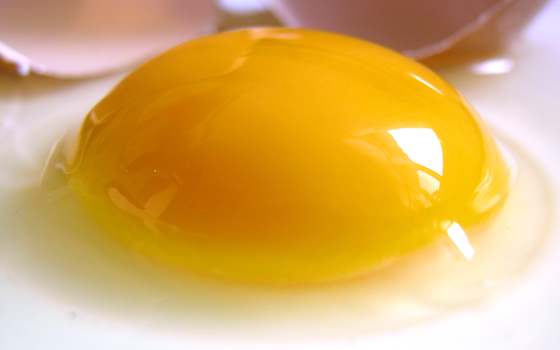- MENU
- HOME
- SEARCH
- WORLD
- MAIN
- AFRICA
- ASIA
- BALKANS
- EUROPE
- LATIN AMERICA
- MIDDLE EAST
- United Kingdom
- United States
- Argentina
- Australia
- Austria
- Benelux
- Brazil
- Canada
- China
- France
- Germany
- Greece
- Hungary
- India
- Indonesia
- Ireland
- Israel
- Italy
- Japan
- Korea
- Mexico
- New Zealand
- Pakistan
- Philippines
- Poland
- Russia
- South Africa
- Spain
- Taiwan
- Turkey
- USA
- BUSINESS
- WEALTH
- STOCKS
- TECH
- HEALTH
- LIFESTYLE
- ENTERTAINMENT
- SPORTS
- RSS
- iHaveNet.com: Health Ailments

Cutting Through Cholesterol Confusion
by Andrea N. Giancoli, M.P.H., R.D.
The debate continues over whether it's still necessary to restrict cholesterol-rich foods, such as eggs. EN weighs in on the current science.
High blood cholesterol, particularly high low-density lipoprotein (LDL) cholesterol, is a well-known risk factor for cardiovascular disease (CVD). What is less clear is whether cholesterol from foods plays a role in raising blood cholesterol levels and CVD risk.
Cholesterol occurs only in animal foods, like beef, poultry, pork, seafood, eggs and dairy products. In addition to cholesterol, animal foods often contain saturated fat, which is linked to increasing blood cholesterol levels. Thus it can be challenging to tease out the separate impact dietary cholesterol has on blood cholesterol and risk for disease.
Enter eggs. Eggs are unique in that they are high in dietary cholesterol (186 milligrams per egg, nearly all in the yolk), but not in saturated fat. This makes whole eggs or egg yolks ideal for investigating the effects of dietary cholesterol on the body and disease risk. Indeed, the research on eggs is extensive but the results are varied.
The egg debate
Do eggs raise cholesterol? Yes and no.
"Two-thirds of the population does not experience any rise in blood cholesterol, even after a challenge of three eggs per day for four weeks," asserts
Fernandez says, "The people who do respond, one-third of the population, raise both LDL ("bad" cholesterol) and HDL ("good" cholesterol). Thus the ratio of LDL to HDL ratio is maintained, which is a key marker for CVD risk." She explains that the LDL/HDL ratio is an expression of how much "bad" (LDL) cholesterol you have compared to "good" (HDL) cholesterol.
Since HDL carries cholesterol to the liver for elimination, effectively neutralizing it, as long as the ratio is maintained it doesn't raise risk for heart disease.
The story doesn't end there, says stroke researcher
Still, the egg debate continues. In 2013, both the
The cholesterol-diabetes link
There's more agreement regarding a connection between eggs and diabetes. The AJCN, BMJ and Atherosclerosis papers all concluded egg consumption raised CVD risk in people with diabetes. What's more, both the AJCN and Atherosclerosis studies reported that more than one egg a day actually increased the risk for developing type 2 diabetes in the general population.
The bottom line
Dietary cholesterol from any food source may not be innocuous. Play it safe by sticking with the
Article: Copyright ©, Tribune Content Agency.
"Cutting Through Cholesterol Confusion"